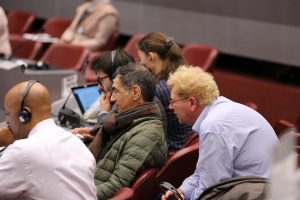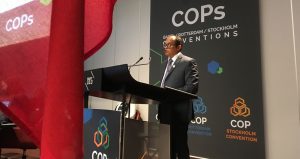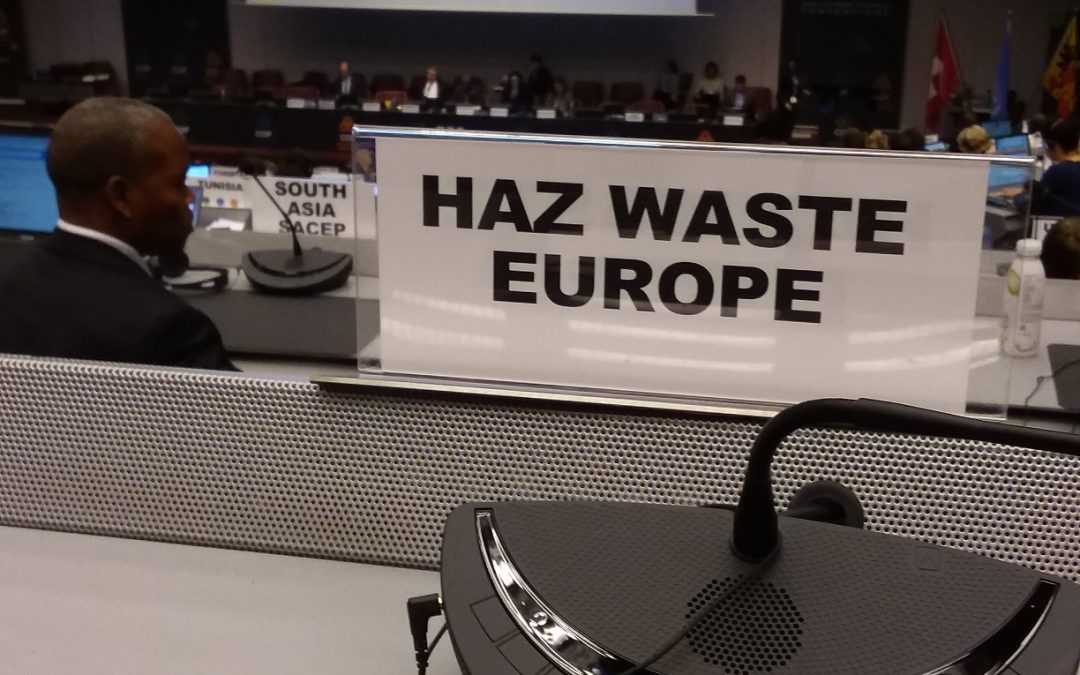The 2019 Triple COPs took place in Geneva from the 29th of April to the 10th of May.
Governments from across the world have converged on Geneva this week for discussions and decisions aiming at protecting human health and the environment from chemicals and waste.
The theme of the COP were » Clean Planet, Healthy People: Sound Management of Chemicals and Waste ».
HWE participated actively as observer to the meetings of the conferences of the parties to the Basel ans Stockholm Conventions.
The Basel Convention on the Control of Transboundary Movements of Hazardous Waste and their Disposal is the most comprehensive international environmental agreement on hazardous and other wastes and is almost universal, with 187 Parties. With an overarching objective of protecting human health and the environment against the adverse effects of hazardous wastes and other wastes, its scope covers a wide range of wastes defined as “hazardous” based on their origin and/or composition and characteristics, as well as two types of wastes defined as “other wastes” – household waste and incinerator ash. See www.basel.int
The Stockholm Convention on Persistent Organic Pollutants is a global treaty to protect human health and the environment from chemicals that remain intact in the environment for long periods, become widely distributed geographically, accumulate in the fatty tissue of humans and wildlife, and have harmful impacts on human health or on the environment. Exposure to Persistent Organic Pollutants (POPs) can lead to serious health effects including certain cancers, birth defects, dysfunctional immune and reproductive systems, greater susceptibility to disease and damage to the central and peripheral nervous systems. The Convention requires its Parties to take measures to eliminate or reduce the release of POPs into the environment. As of today, this legally-binding Convention has 182 Parties, giving it almost universal coverage. To date, 28 chemicals of global concern have been listed under the Stockholm Convention. See www.pops.int
The Rotterdam Convention on the Prior Informed Consent Procedure (PIC) for Certain Hazardous Chemicals and Pesticides in International Trade, is jointly administered by the United Nations Food and Agriculture Organization (FAO) and UN Environment (UNEP). The 161 Parties to this legally-binding Convention share responsibility and cooperate to safely manage chemicals in international trade. To date 50 chemicals and pesticides are listed in its Annex III. The Convention does not introduce bans but facilitates the exchange of information among Parties on hazardous chemicals and pesticides, and their potential risks, to inform and improve national decision making. In addition, through the PIC Procedure, it provides a legally-binding mechanism to support national decisions on the import of selected chemicals and pesticides in order to minimize the risk they pose to human health and the environment. See www.pic.int



